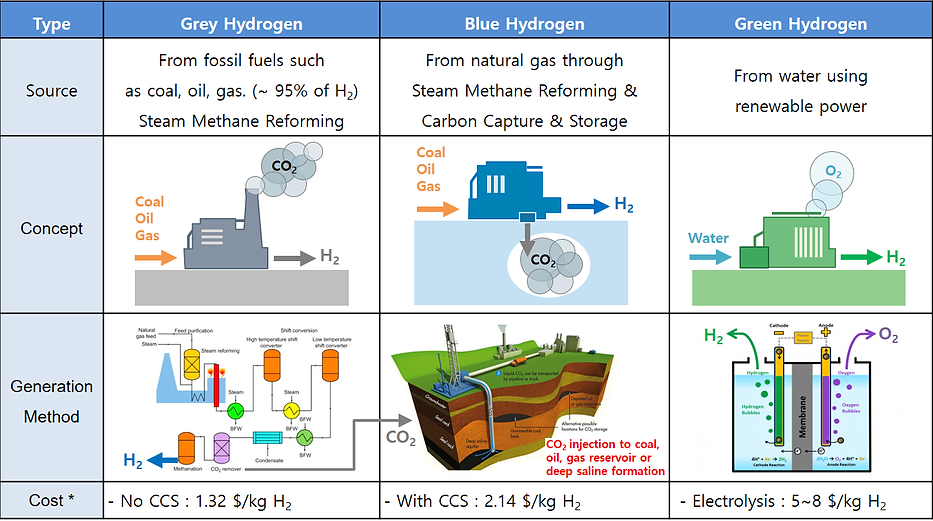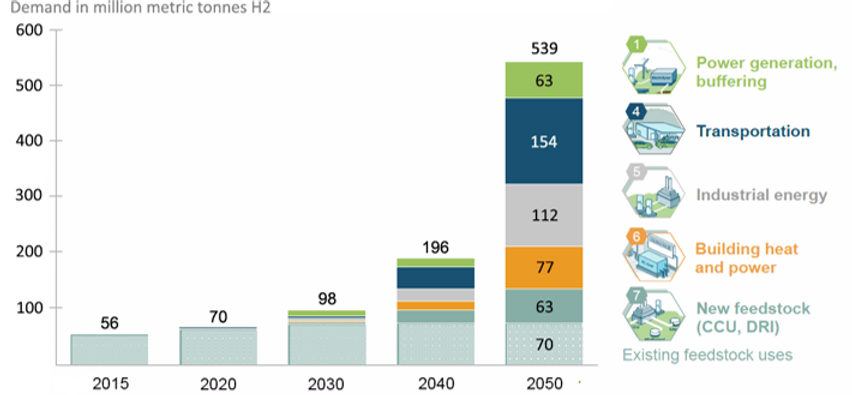top of page
What is Hydrogen ?
Hydrogen is the chemical element with the symbol H and atomic number 1. With a standard atomic weight of 1.008, hydrogen is the lightest element in the periodic table and the most abundant chemical substance in the universe, constituting roughly 75% of all baryonic mass.
HYDROGEN
What is Hydrogen ?
Hydrogen is the chemical element with the symbol H and atomic number 1. With a standard atomic weight of 1.008, hydrogen is the lightest element in the periodic table. Hydrogen is the most abundant chemical substance in the universe, constituting roughly 75% of all baryonic mass. Hydrogen contains about three times the energy of natural gas, and it is an energy carrier that can store energy from other sources. It is a clean energy that only produces water, electricity, and heat when consumed in a fuel cell.
How to produce Hydrogen ?
Hydrogen can be produced from various resources such as fossil fuels, biomass and electrolysis of water with electricity. The environmental impact and energy efficiency of hydrogen depends on how it is produced. There are three types of hydrogen which are grey hydrogen from fossil fuels, blue hydrogen from fossil fuels with CCS, and green hydrogen from electrolysis of water. Based on BP’s estimation, blue hydrogen will take up more than 50 % of total hydrogen production in 2040.

* Source : Gasunie (2017), BC Hydrogen Study (ZEN, 2019)
Where to use Hydrogen ?
Hydrogen has the potential for use in a broad range of applications in all sectors such as transportation, commercial, industrial, residential and portable, and will play an important role in our energy future. When consumed in a fuel cell, hydrogen only produces electricity, water, and heat.

* Source : ENERKNOL
How much Hydrogen do we need ?
With its potential to be used in virtually all sectors in various applications, the annual demand is expected to increase tenfold from 2015 to 2050 – from 8 EJ (1018 joules) in 2015 to almost 80 EJ in 2050 (Hydrogen Council). Hydrogen has energy density of 120 ~ 142 MJ/kg (MJ = 106 joules), which indicates that by 2050, up to 539 million tonnes of hydrogen would be needed.

* Source : Hydrogen Council

bottom of page